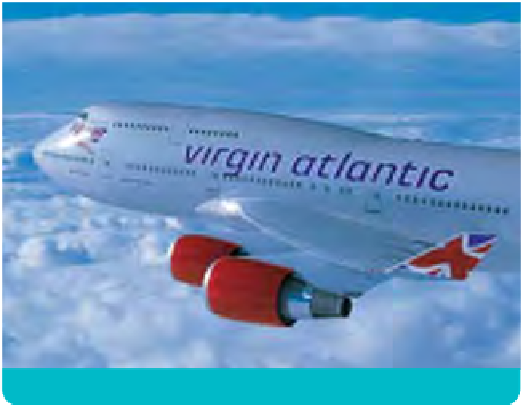Travel Reference
In-Depth Information
demand for scheduled and charter fl ights, the latter
being combined with accommodation, transfers and
courier services to form the overseas package tour that
is so familiar today.
Growth of the low-cost airlines
One of the most important developments in the transport
sector in recent years has been the introduction of low-
cost airlines, helped by the growth in internet use. The
low-cost carriers, including easyJet, Ryanair, fl ybe and
bmibaby, offer a cheap, 'no frills' service to people
looking to travel on a budget. They are able to offer
cheap fares by keeping support services to a minimum
and selling direct to travellers via the internet and
telephone, thereby saving travel agents' commission
charges. They also use smaller regional airports that
charge lower landing fees and the airlines sell ranges
of add-on products, such as travel insurance, 'phone
cards, car hire, rail tickets and accommodation on a
commission basis. The low-cost carriers are a serious
threat to the longer-established 'full service' airlines,
which are having to cut their prices and alter their
services to compete.
A Virgin Atlantic Boeing 747
Increasing car ownership
The increase in car ownership after the Second World
War provided individuals with greater freedom and
fl exibility in the use of their leisure time. People travelled
further afi eld, exploring new areas of the British coast
and countryside. The number of private cars on the
roads of Britain rose steeply from 2.3 million in 1950
to 11 million in 1970. In 2002 the fi gure exceeded 22
million vehicles and by 2005 had risen to 33 million.
Current (2009) fi gures show a slight fall to 31 million.
FOCUS ON INDUSTRY
Although this rise in car ownership has brought increased
freedom and fl exibility, it has highlighted a number
of issues of concern. Firstly, the upward trend in the
ownership of cars has resulted in a drop in demand for
traditional types of public transport. The use of trains
for holiday travel has fallen dramatically since 1945
and statistics for coach travel show a similar downward
trend. This fall in demand for public transport has led
to cuts in services and, in the case of the railways, the
closure of unprofi table lines. Those living in the remoter
rural areas of Britain have been particularly affected by
these service reductions and the loss of choice in their
travel arrangements.
RYANAIR LOW-COST AIRLINE
Launched in 1985 with just one aircraft and 25
members of staff, Ryanair is now one of the world's
most successful airlines with 41 bases and 1100+
low-fare routes across 26 European countries,
connecting 153 destinations (2010 fi gures). Ryanair
operates a fl eet of 232 new Boeing 737-800 aircraft
with fi rm orders for a further 82 new aircraft (before
taking account of planned disposals), which will be
delivered by 2013. Ryanair currently has a team
of more than 7,000 people and expects to carry
approximately 73 million passengers in fi scal year
2010/11.
A second consequence of the growth in car ownership
in the UK has been the rise in associated environmental
problems, including pollution, congestion and the loss
of land to further road building. These problems are
particularly acute in many of Britain's historic cities and
scenic countryside areas. In many National Parks, for
example, the volume of cars is having a damaging
effect on the landscapes and wildlife habitats, often
Weblink
Check out this website for more
information on Ryanair.
www.ryanair.com





























































































































































































































































